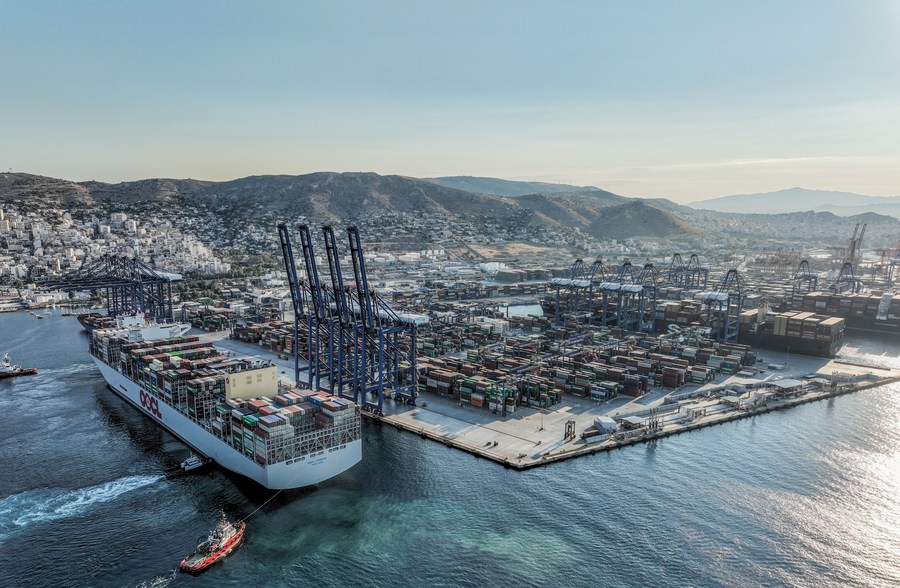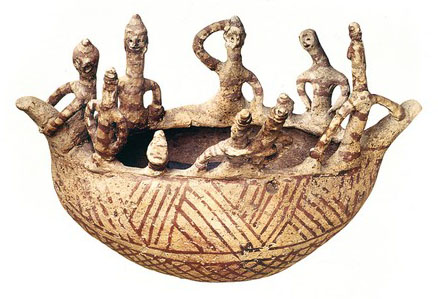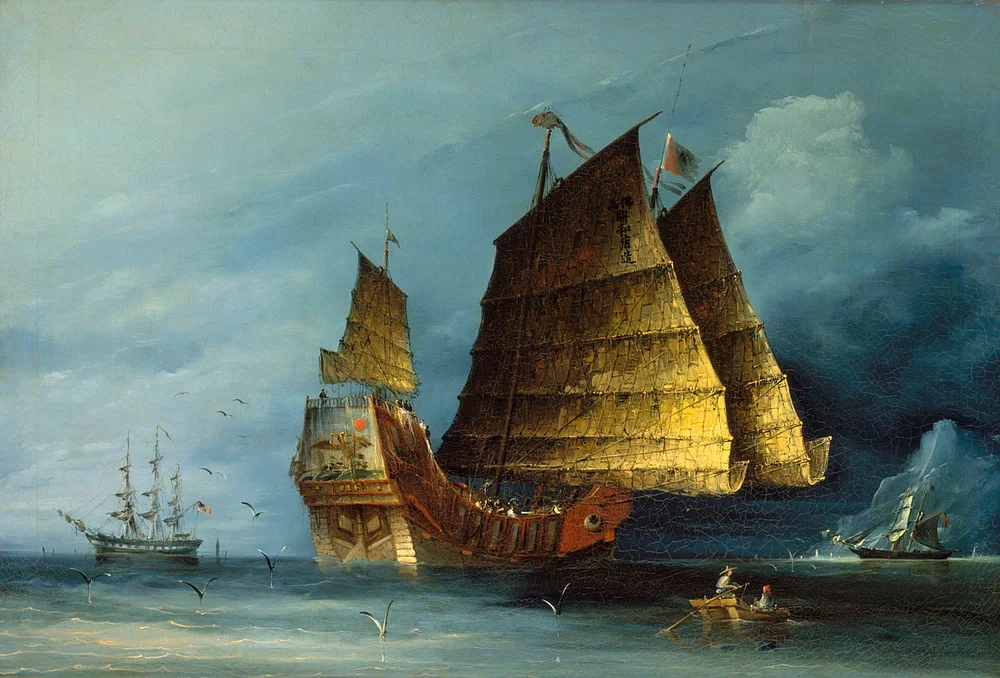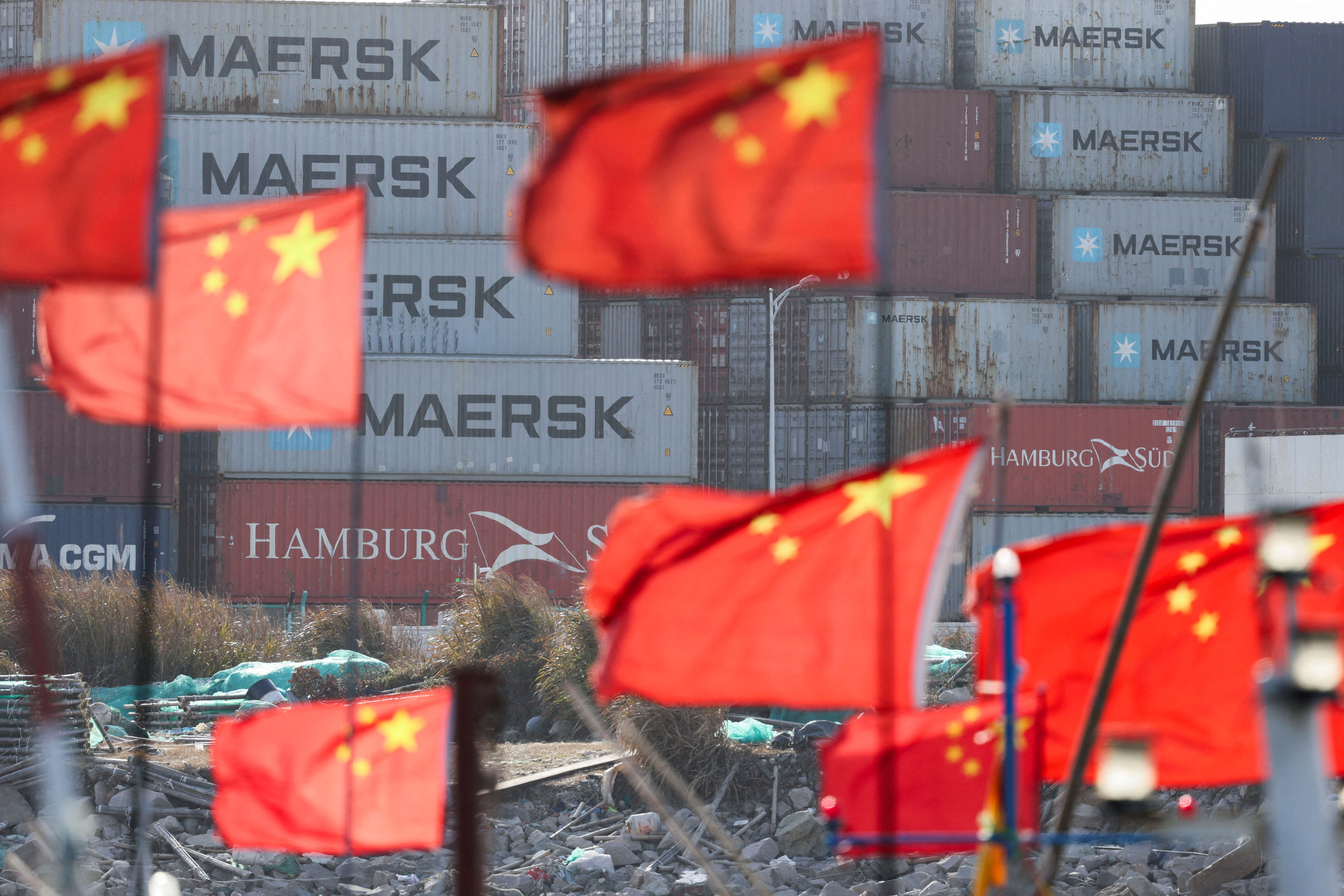On other sides of the world, China and Cyprus have maritime sectors that significantly contribute to supporting the country
By Karen Taylor
International maritime trade first emerged around the world thousands of years ago, linking small traders with goods they could otherwise not access. Today, what is referred to as the Blue Economy keeps nations around the world afloat.
In China, the first known exchanges by sea are detailed in the Book of Han when contact was made with other coastal states of the South China Sea, while unearthed relics indicate exchanges between China and other countries may have preceded the Han Dynasty (206BC-220AD). In the Mediterranean, ancient sailors were using well-established sea routes from around 3000BC.
Cyprus’ islanders took to the sea from very early on, seeking trade with neighbouring countries and exchanging products, mainly copper, through antiquity. Clay models of ships dating from the Middle Bronze Age to the Roman era have been found on the island but perhaps the best known indication of a historic maritime industry is the Kyrenia, an ancient Greek merchant ship that sank off the coast of Cyprus in 294 BC, which was discovered in 1965.
On the other side of the world, a maritime route for international trade replaced the Silk Road under China’s Tang dynasty (618-907AD) running 14,000km along the southeast coast, later becoming known as the Maritime Silk Road, reflecting its main cargo. It was the longest ocean route in the world, passing through more than 100 countries and regions.
The 21st century Maritime Silk Road, launched in 2013, seeks to develop a wider range of cooperative activities through interconnected markets linking South Asia, West Asia, North Africa, and even Europe. The nation’s three ‘blue economic
passages’ include the China-India Ocean-Africa-Mediterranean Sea Blue Economic Passage.
In 2013, Chinese President Xi Jinping outlined how development plans and joint actions by countries along the Maritime Silk Road could promote sustainability by jointly using marine resources.
As the largest ecosystem on earth, oceans have become a bridge for market and technological cooperation and information sharing; strengthening maritime cooperation contributes to closer links between world economies, deeper mutually beneficial cooperation, and broader space for development. Enhancing maritime cooperation also enables various countries to jointly tackle challenges and crises, and it is ocean cooperation that is at the centre of the China-Indian Ocean-Africa-Mediterranean Sea Blue Economic Passage.

With its strong maritime history, Cyprus has in modern times evolved into a fully-fledged shipping centre, combining a prestigious registry of ships with high standards of safety, and a domestic shipping industry renowned for its excellent quality services, President Nikos Christodoulides said last year.
But, he added, “challenges can be tackled only by a collective approach that will facilitate international solutions”.
This view was backed by deputy shipping minister Marina Hadjimanoli, who said the challenges facing our oceans are immense and cannot be tackled by any one nation in isolation. “This is why we have adopted the Commonwealth Blue Charter” hand in hand with other Commonwealth nations.
Last month, Hadjimanoli was in Brussels for a high-level roundtable on the European Ocean Pact, a key initiative aimed at bringing more coherence across the various policy fields linked to the ocean.
She stressed that protecting the marine environment and reducing the carbon footprint of shipping and other maritime

sectors is vital to Cyprus’ efforts towards sustainable blue growth.
Meanwhile, investments from China have breathed new life into a Greek port, making it a flagship project under the maritime silk road initiative. Since China’s COSCO Shipping bought into the port of Piraeus in 2010, the harbour has experienced rapid growth, transforming into a bustling transport hub.
“A formerly big port with huge competitiveness problems has become one of the most competitive ports in Europe,” Bank of Greece Governor Yannis Stournaras said.
The marine economy in China surpassed 10 trillion yuan (€1,276 billion) last year, contributing 0.4 percentage points to national economic growth. This includes the construction of ships, which measured in gross tonnage saw the industry’s contribution pass 50 per cent of the international market. The marine service sector remained a key driver of economic growth, with marine tourism also seeing strong growth.

“China’s marine economy has firmly transitioned toward high-quality development,” professor at the Ocean University of China Liu Shuguang told the Global Times, adding that the sector’s overall growth rate last year exceeded that of GDP. Looking ahead to 2025, he predicted significant potential across a wide range of sectors of the marine economy.
The shipping sector in Cyprus represents seven per cent of the island’s GDP, making a substantial contribution on the island too to the development of the economy. “Equally important is its role to the social and political development of our country,” Christodoulides said.
About Mirror of Culture
Mirror of Culture is a joint initiative of the Cyprus Mail and the Chinese embassy. It highlights the parallels between Cypriot and Chinese culture to set an example of acceptance, respect and
understanding among the various cultural communities on the island, recognising the fundamental importance of culture.
Culture is the universal language that transcends many barriers, including language and geography. The aim is to work with diverse cultural communities in Cyprus to share and promote our vibrant cultures to further bolster the bonds among all the people of Cyprus and celebrate the diversity of cultures in the world.
Furthermore, the initiative understands the importance of cultural preservation, which is an important way for us to transmit traditions and practices of the past to future generations.






Click here to change your cookie preferences